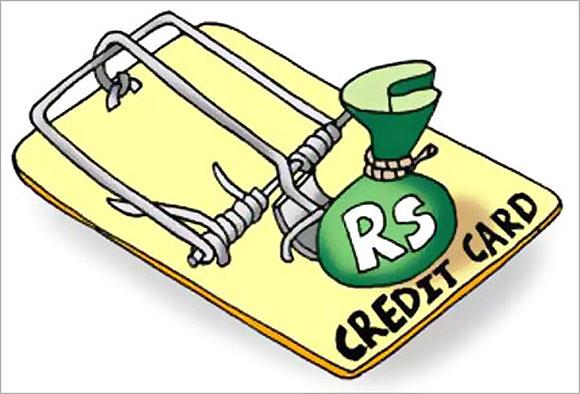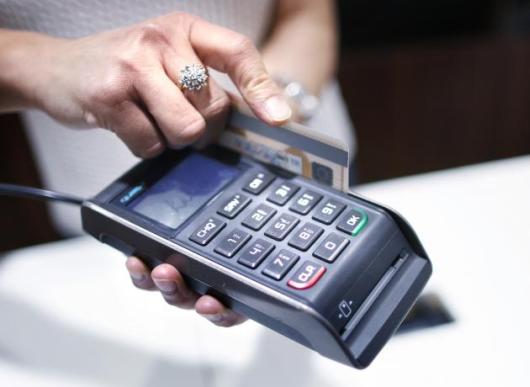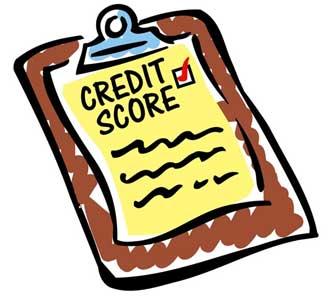Remember, the obligation lies with YOU. Not the credit card company.
Ushir Sen had been receiving his credit card bills late for few months now. But a month after he received his card statement later than the due date he was dazed to see late payment fee and finance charges being added up to the total bill.
He wanted the card company to reverse these charges as they never sent the bills on time, he argued. But are these valid arguments?
Illustration: Uttam Ghosh/Rediff.com
Pay credit card dues even if you DON'T get bills on time
Photographs: Rediff Archives
Indeed, Sen's wiles that since he never got the bill the bank should not slap late payment fee on the charges are not justified. The card holder's agreement mentions, "Non-receipt of the statement cannot be a ground for waiver of late payment fee."
In fact, many card holders have wrongly argued in front of the banking ombudsman that they refused to pay the outstanding as the bank raked up the payment due by adding late payment fee and other charges even though they never got the credit card statement at the end of the month.
Pay credit card dues even if you DON'T get bills on time
It is explicitly mentioned in the terms and conditions on the form that you sign while applying for a credit card that, "Non-receipt of the statement for any reason, whatsoever is not a valid reason for non-payment of the amount due."
The obligation of checking the bill and paying on time lies with the cardholder. The same is notified through clauses in the Most Important Terms and Conditions (MITS).
"Should you not receive the statement within 10 days from the date of your usual statement date, please call us to check the amount payable," say the MITS of American Express.
Illustration: Dominic Xavier/Rediff.com
Pay credit card dues even if you DON'T get bills on time
Photographs: Reuters
You can know the amount payable by summing up the amount noted in charge slips handed over to you when you swipe the card. But charge slips are not handed over for online payments and hence calling up the call centre and knowing the exact amount would be in your interest.
Checking the bill is not just important for payment on time, but also to know if there are any errors or fraudulent transactions. As a norm for reporting disputes banks and credit card companies require that you notify the error in the card statement within 21 days of the bill generation.
Pay credit card dues even if you DON'T get bills on time
If you do not do so, the statement will be conclusively settled to be complete and correct," the banks say.
Set up reminders for your credit card statement arrival date and if you don't receive them proactively check the bill amount and pay up. Else, your CIBIL credit score is at risk.
Illustration: Uttam Ghosh/Rediff.com







Comment
article